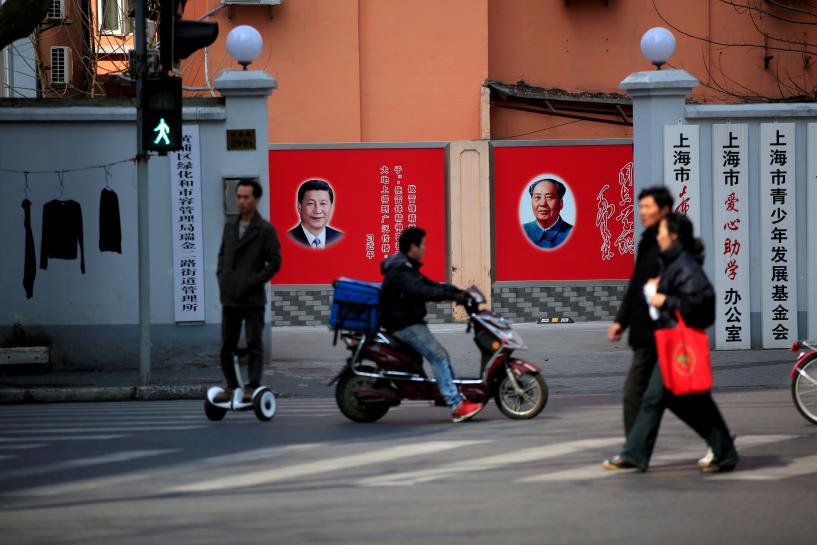
China aims to pass a national supervision law and set up a new commission next year to oversee an expansion of President Xi Jinping’s campaign to fight corruption in the ruling Communist Party and government, the party said on Sunday.
BEIJING (Reuters) – China aims to pass a national supervision law and set up a new commission next year to oversee an expansion of President Xi Jinping&rsquo-s campaign to fight corruption in the ruling Communist Party and government, the party said on Sunday.
The moves will be made during China&rsquo-s annual meeting of parliament early next year, the Central Commission for Discipline Inspection (CCDI), the party&rsquo-s anti-graft watchdog, said in its report to a five-yearly party congress last week.
The report, issued by the official Xinhua news agency, had not been previously released and gave few other details on the new commission.
&ldquo-All provinces, regions and cities must closely connect regional practices, integrate reform pilot scheme experience, implement the overall plan according to the decision of the party&rsquo-s Central Committee, and promote organizational integration,&rdquo- the report said.
The report also said former Chongqing Party boss Sun Zhengcai and a group of other top officials ousted for graft, including former security tsar Zhou Yongkang, were &ldquo-schemers&rdquo- and &ldquo-plotters&rdquo- out to further their own careers.
The official line on Sun and Zhou had been that graft, not politics, was the primary reason for their downfall.
Zhao Leji, the newly appointed head of the CCDI, told the commission that they must secure a &ldquo-sweeping victory&rdquo- in the fight against corruption, and set up an institutionalized legal framework to make it impossible for officials to be corrupt, Xinhua reported.
Zhao took over from Wang Qishan as part of a leadership reshuffle announced at the close of the 19th National Party Congress of the Communist Party, which ended last Tuesday.
Wang had been widely credited with the success and vigor of the graft fight. Analysts say Zhao is likely to take a more institutional approach.
The new National Supervision Commission will work alongside the CCDI, sharing much of its power and resources, and will merge multiple additional anti-graft units, according to an announcement last year. It will also expand the purview of Xi&rsquo-s anti-graft campaign to include employees at state-backed institutions who are not necessarily party members.
Since coming to power in 2012, Xi&rsquo-s signature anti-corruption drive has jailed or otherwise punished nearly 1.4 million party members and he has emphasized the importance of improving China&rsquo-s rule of law architecture.
In his congress address, Xi said China would keep up with the &ldquo-irreversible&rdquo- momentum of the anti-corruption campaign, and announced a central leading group responsible for overseeing China&rsquo-s law-based governance.
Xi also said the party would scrap the practice of secretive interrogations known as &ldquo-shuanggui&rdquo-, in which cadres accused of graft and other disciplinary violations are routinely subjected to extrajudicial detention, isolation and interrogation by the CCDI.
The CCDI only hands cases over to police and the judiciary for prosecution. International rights groups have raised concerns about torture, including sleep deprivation, being used to obtain confessions.
 0 comments
0 comments





